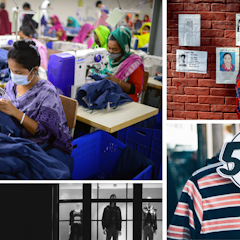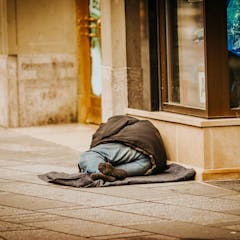
Articles on Poverty
Displaying 81 - 100 of 883 articles

Should people aged 55 and over get a targeted boost to their JobSeeker payments? Our research suggests the need among young Australians may well be greater.

People’s physical and mental health suffers – all while trying to hold down a job or getting their kids to school.

Experiencing nature helps people in times of joy and pain. However, inequity of access to green spaces means that South Africans cannot enjoy nature when they need to.

Health outcomes continue to be influenced by geography, with local communities having to plug gaps in services. The health reforms offer a chance to strengthen local networks to respond better.

We look back to the 2013 Rana Plaza garment factory collapse in Bangladesh that killed 1,124 people and discuss how much — or how little — has changed for garment-worker conditions today.

Policies that reduce poverty, inequality and socioeconomic insecurity lower the incentive to engage in or tolerate terrorism.

The idea that the poor are impoverished morally as well as materially, that they lack humanity as well as means, has a long history.

Initiatives like the federal government’s new grocery rebate are only a small step towards ending food insecurity in Canada. A broader guaranteed basic income is long overdue.

Breaking the cycle of poverty for future generations requires talking about it with children now, and helping them understand the causes of economic inequality.

The UK is among countries cutting international aid payments, which could affect the world in four key areas: poverty, extremism, democracy and refugees.

Canada’s official poverty measure only focuses on income and ignores other important factors, meaning there are millions of Canadians living in poverty that are ignored by the measure.

The food aid supply chain relies on surplus.

Persistent absence means missing 10% or more of classes.

There are at least five errors that marred the currency redesign policy of the Central Bank of Nigeria, most of which could have been avoided.

High rural poverty rates are driven largely by fuel and transport costs.

Adverse childhood experiences are associated with an increased risk of mental health problems in adulthood.

Zambia has progressively incorporated green-based policy interventions since the 1960s.

What a new president needs to know as he takes the reins of a deeply divided and disillusioned country.

Poverty drives vulnerability to climate risks in Port Harcourt, Nigeria.

Chad fulfils all conditions to be affected by Islamist terrorism. But the threat so far comes from its neighbours, not from the inside.
